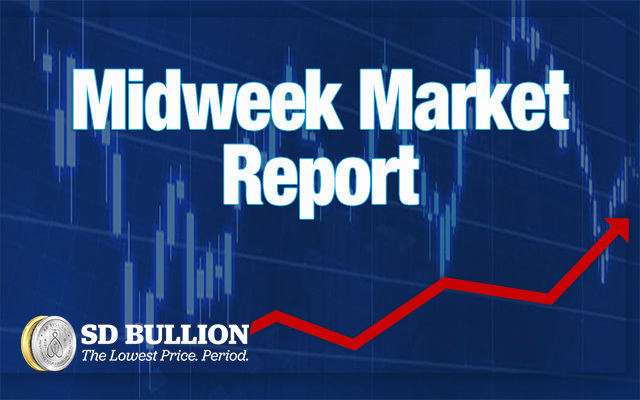Inflation is a consequence, and inflation has consequences. One of those consequences comes in the form of higher interest rates. Of course, I’m talking about basic financial math, and common sense, really, and since the Fed and the Federal government don’t like either of those, much less apply them in practice, and since our central bankers and elected leaders would rather intervene in the markets to suppress interest rates, a policy to which market participants have come to count on in lieu of having to navigate an investment landscape with unimpeded natural, organic price discovery, suffice it to say the markets had a pucker moment yesterday after ex-Fed Chair turned US Treasury Secretary Janet Yellen said interest rates might need to go up.
When speaking at an event hosted by The Atlantic, Yellen also used the dreaded “O” word (bold added for emphasis and commentary):
*****
It may be that interest rates will have to rise somewhat to make sure that our economy doesn’t overheat
*****
The impact of such a statement on the markets, even though the statement was qualified with doubt, was instantaneous. The stock market sold off, gold & silver sold off, and the dollar jumped, and since the stock market especially needs constant reassurance and hand-holding, Yellen then later walked back her comments to state that she wasn’t predicting higher interest rates.
And not only that but out came the “T” word, again:
At The Wall Street Journal's CEO Council Summit, Treasury Secretary Janet Yellen walked back comments she made earlier suggesting that interest rates might rise #WSJWhatsNow pic.twitter.com/Zq1zFQzTSz
— The Wall Street Journal (@WSJ) May 5, 2021
Yellen, in singing the same tune as current Fed Chair Jerome Powell, reiterated the assumption that inflation, including “price pressures”, are “transitory”.
Here’s the question: Right now, it is pretty clear the Fed and the Federal government are “all-in” on this inflation being transitory, and the very nature of the word “transitory” means that some time must pass until they know whether the inflation is in fact transitory, or not, and if the inflation is not transitory, wouldn’t the financial interventionists already be behind the curve in fighting the inflation?
Follow-up question: Even if the Fed and the Federal government could fight inflation as they claim they can, wouldn’t they also claim that it will take time for a change in policy to have an impact on the markets and the economy, and, as such, the Fed and the Feds will move too slowly in their fight, thus exacerbating the problem and falling even further behind the curve?
Here’s some food for thought, no pun intended: My wife recalls buying 10 ears of corn for $1 two years ago, I recall buying 5 ears of corn for $1 last year, but right now, we are paying $5.99 for 8 ears of corn at a major retailer, and we only get 10 ears of corn for the same price at the discount produce vendor that sells over-ripe, blemished, and imperfect fruits & vegetables.
Here’s the point: Inflationary pressures have been building for years, and arguably, prices have been rising for years, so in ignoring the past and in brushing off the present as “transitory”, if Fed Chair Jerome Powell and US Treasury Secretary Janet Yellen are wrong about inflation and prices, the pain for those who believe Powell & Yellen may become persistently acute, and the economic misery and financial ruin for the unprepared will be life-changing, and not in a good way.
Here's the 64,000 question: Could Yellen be wrong?
Here’s a friendly reminder: In 2017, when she was still the Fed Chair, Janet Yellen said, among other things, that she didn’t believe there would be another financial crisis in our lifetimes!
Hmmm.
And now, let’s check out some charts.














